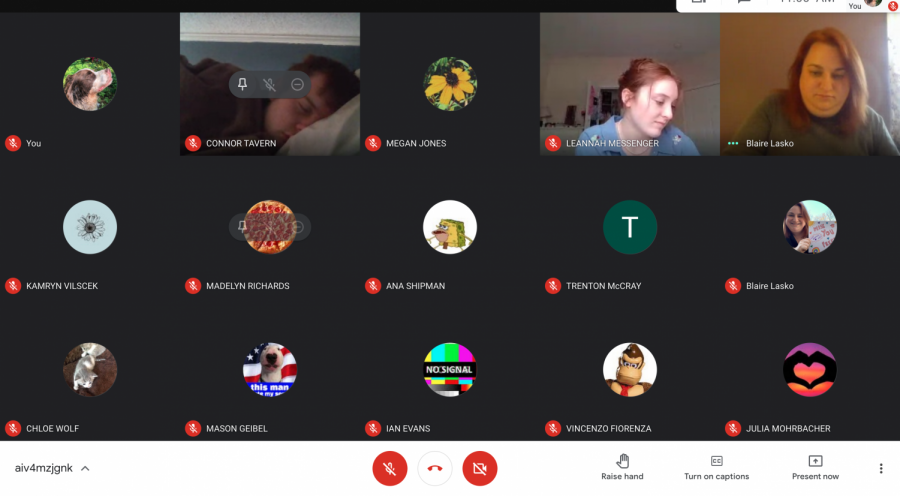Students struggle with sleep deprivation
Suffering from sleep deprivation, sophomore Connor Tavern takes a nap during English class.
For people who like to go to bed early and wake up early, life is a walk in the park. People who live an early bird lifestyle often have the upper hand because most workplaces start early, schools start early and many businesses are opened earlier rather than later. But what about people who don’t enjoy waking up at the crack of dawn? According to carolynschur, 80% of the general population claim to be night owls, so it makes no sense why many workplaces and schools start so early.
66% of adolescents are regularly sleep deprived; this correlates to the fact that the average student goes to bed at 11 p.m. Adults have a tendency to believe it is the student to blame for their “unhealthy” sleeping habits, but in reality going to bed late has been scientifically proven in teens. According to sleepfoundation, melatonin is secreted later for teenagers than it is for adults. While adults may be able to drift asleep at what is considered a “healthy” time, teens may have issues falling asleep and feeling energized rather than tired.
The average start time for schools in the U.S. is 8:03 a.m., which does not seem too early. The problem is that students still need time to prepare for school each morning. When you factor in how much time students spend on the bus and getting ready in the morning, students may need to wake up two to three hours earlier depending on how far they live from school and how long they take to get ready. If students get up at 6 a.m. or 7 a.m. and go to bed at 11 p.m. or later, they will be unable to get the recommended 10 hours of sleep teens need. A common argument is that students will someday need to wake up early for their job, but most adults work a 9-5 shift which allows for an extra hour of sleep more than what the average teen is currently receiving.
While in school it is not uncommon to see someone falling asleep during class and now that most schools are online, opening a laptop and falling back asleep is not a difficult task. According to Healthline, some side effects of getting little sleep include lack of concentration, memory issues and mood changes. Lack of sleep affects not only a student’s mental and physical health, but also their academic performance. A study shows students who started school at 7:15 a.m. had significantly worse grades than students who started school at 8:37 a.m.
Altogether, in order to better accommodate for the majority of students, schools should start later in the morning. Students will be able to focus on their work, have a better attitude towards school and feel better both mentally and physically.



